This article was co-authored by Paul Chernyak, LPC. Paul Chernyak is a Licensed Professional Counselor in Chicago. He graduated from the American School of Professional Psychology in 2011.
There are 18 references cited in this article, which can be found at the bottom of the page.
wikiHow marks an article as reader-approved once it receives enough positive feedback. In this case, 92% of readers who voted found the article helpful, earning it our reader-approved status.
This article has been viewed 31,201 times.
When you are diagnosed with depression, your physician will conduct a physical examination of you and get some basic lab work (to rule out other medical causes for depression). She may prescribe an anti-depressant. However, these medications usually take from 2-8 weeks to take full effect.[1] In the meantime, it may help to develop a routine and start some healthy practices to manage your days until you start noticing a difference in your symptoms.
Steps
Managing Your Days
-
1Take your medications as directed. Medications to treat depression may need to be taken at a certain time every day. It is important to take your medications exactly as your doctor prescribed them, as following the directions may minimize the potential side effects you experience.[2]
- Never stop taking your medications unless your doctor advises you to do so.
- Stopping your regimen suddenly will cause your symptoms to return full-force, and you may even experience additional withdrawal symptoms.
- Be mindful that not taking your meds as directed, or failing to take your meds at all, could lead to you having thoughts about hurting yourself.
- If you are having suicidal thoughts, immediately call your doctor or a suicide helpline. If need be, take yourself to the hospital.
-
2Stick to a routine. It can be terribly difficult to drum up the energy to get out of bed when you are suffering from depression. Creating a morning routine made up of small, successive steps can help you to manage the day more easily and set you off to a good start.[3]
- Arise at the same time every morning (including weekends).
- When you wake, perform a few simple tasks, such as sitting up in bed.
- Then, focus on actually getting out of the bed.
- Next, do some light stretching. Wash your face and brush your teeth. Eat breakfast and take your meds.
- Rather than thinking about getting through the entire day, focus on completing one task at a time.
Advertisement -
3Practice good sleep hygiene. Turn off your phone, computer, television, and wind down for an hour or so before bed. Avoid caffeine and alcohol as they both can inhibit the quality and quantity of sleep you get. Read, take a bath, and establish a nightly bedtime ritual. Go to bed at the same time each night.[4]
- When you improve your sleep habits, you may wake feeling more refreshed and energized.
- Lack of sleep can have a significant impact on mood. Healthy sleep patterns can go a long way in improving your depressive symptoms.[5]
-
4Get some exercise. It's a mood brightener. The endorphins released after a good sweat session can naturally lift your mood. What's more, regular exercise gives you confidence, relieves stress, provides a mechanism for healthy coping, and can even help you sleep.[6]
- Don't pressure yourself about the intensity or duration of exercise you get. Just strive to get your body moving in any way possible.
- Walking, swimming, and yoga are all potentially low-impact activities you can do.
-
5Bathe, dress and groom yourself every day by a given time. You'll feel better for it.[7] And the people around you will appreciate it also. Including these tasks in your morning routine can help you to feel more accomplished and motivated for other tasks that await you. If it's all you manage to do, that's okay, too.
Coping with Negative Thoughts and Feelings
-
1Monitor your thinking. Depressive thinking is overwhelmingly negative. One of the most helpful methods of overcoming depression is learning to change negative thought patterns. This is a major undertaking to do on your own. It is usually most productive when you are guided into changing negative thought patterns with your psychologist or therapist in cognitive behavioral therapy.[8] In the meantime, you can simply focus on becoming more aware of your unhealthy thought patterns.
- When you are feeling particularly low or down, look back over your thoughts. What have you been saying to yourself for the past few hours or days?
- More than likely, these thoughts are negative and contributing to your poor mood.
- Notice negative thoughts, acknowledge them as being negative and unhelpful to your situation, and release them.
- Remind yourself that thoughts are just thoughts; they aren't facts or truths.[9]
- Once you become good at spotting negative thought patterns, you can try to challenge these thoughts.
- Is what you're saying to yourself logical and realistic? Or, is it exaggerated in some way?
- Try to attack your negative thinking by pointing out how irrational it is, then restate your self-talk to be more realistic.
- Reframe "My symptoms will never improve" as "It's taking time for my symptoms to improve dramatically, but I have noticed some improvements."[10]
-
2Journal each evening. Journaling can be a cathartic experience since it allows you to unload your worries, problems, and stressors onto a sheet of paper. In regards to depression, journaling can also help you to problem-solve and track patterns in your symptoms.[11]
- Write in your journal at the end of your day. Include details of what happened, how you felt, and what you thought.
- Consider how you could have handled the day differently by changing your thoughts and reactions to stressful situations.
-
3Practice relaxation exercises. Although meditation is heavily acclaimed for its mental health benefits, unless you are already a guru, you may not have the mental discipline to practice right now. Try some easy relaxation exercises to reduce your stress. These may include deep breathing, yoga, massage, listening to soothing music, or taking a long, hot bath.[12]
Being Gentle with Yourself
-
1Break down large tasks.[13] Just like you might have to simplify your getting ready routine to smaller, successive steps, it might also be helpful to do this for schoolwork, housework, and other projects. Doing this can help you to ward off additional stress that might worsen your depressive symptoms. It can also help you maintain focus if your depression makes you feel scattered or unfocused.
-
2Don't pressure yourself to be too social. Yes, your family and friends may think it's a good idea for you to attend a big gathering or event, but, it's common to not want to be around others when you are depressed. If your symptoms have yet to let up, you just may not have it in you to socialize. If you do, aim for a low-key event in or near your home, where it won't be too big of a deal if you have to bow out.[14]
- Strive to be social in small ways each day. Even small instances of social connection can lift your spirits.
-
3Get some sunshine, even if it is only on your lunch break. It has been found that people deficient in Vitamin D, which is provided through sunlight, frequently suffer from depression.[15] Furthermore, being outside in nature can reduce stress and reduce depressive symptoms. One study found significant improvements when participants engaged in group nature walks.[16] Spend more time outside during the time you are waiting on your meds to work.
Understanding Your Depression
-
1Remember this is an illness like any other one. It requires medication. You aren't defective. Your brain chemicals are at an unhealthy level, just like in diabetes when your blood sugar is at an unhealthy level. Like diabetes, there are effective treatments to help you manage this illness.
-
2Don't use supplements without telling your doctor. Many people believe St. John's wort to be an effective natural remedy for depression. Unfortunately, this supplement interacts with antidepressants and can lead to an increase in side effects and a potentially life-threatening condition known as serotonin syndrome. Refrain from taking any supplements until you have discussed their possible side effects with your doctor.[17]
-
3Don't give up hope. If you find that the antidepressant you are currently taking doesn't work, another one will. You may have to go through several different options before you see a drastic improvement in your symptoms.[18]
- If you've gone through several meds that have not worked after a good trial, get a second opinion or perhaps more lab work.
Warnings
- The underlying cause of your depression (maladaptive thought patterns and poor coping skills) may not be addressed solely with medication. You may need to receive a combination of medication and psychotherapy to fully recover from depressive symptoms and lead a healthy and productive life.⧼thumbs_response⧽
- If, at any time, you have thoughts of harming yourself or someone else, seek medical attention right away.⧼thumbs_response⧽
References
- ↑ https://www.nhs.uk/mental-health/talking-therapies-medicine-treatments/medicines-and-psychiatry/antidepressants/overview/
- ↑ https://www.urmc.rochester.edu/encyclopedia/content.aspx?ContentTypeID=56&ContentID=2702
- ↑ https://www.nami.org/blogs/nami-blog/august-2017/the-power-of-a-morning-routine
- ↑ https://www.nami.org/Blogs/NAMI-Blog/January-2018/5-Sleep-Tips-that-Can-Help-with-Depression
- ↑ http://www.health.harvard.edu/newsletter_article/Sleep-and-mental-health
- ↑ https://adaa.org/living-with-anxiety/managing-anxiety/exercise-stress-and-anxiety
- ↑ http://www.mentalhealthamerica.net/taking-good-care-yourself
- ↑ http://www.adaa.org/finding-help/treatment/therapy
- ↑ https://adaa.org/learn-from-us/from-the-experts/blog-posts/consumer/thoughts-are-just-thoughts
- ↑ http://www.usc.edu.au/media/3850/Reframingyourthinking.pdf
- ↑ https://www.urmc.rochester.edu/encyclopedia/content.aspx?ContentID=4552&ContentTypeID=1
- ↑ https://www.health.harvard.edu/mind-and-mood/six-relaxation-techniques-to-reduce-stress
- ↑ http://columns.uga.edu/news/fulltext/break-large-tasks-down-into-smaller-more-manageable-pieces/
- ↑ http://www.helpguide.org/articles/depression/dealing-with-depression.htm
- ↑ http://www.ncbi.nlm.nih.gov/pmc/articles/PMC2908269/
- ↑ https://www.heart.org/en/healthy-living/healthy-lifestyle/stress-management/spend-time-in-nature-to-reduce-stress-and-anxiety
- ↑ https://www.hopkinsmedicine.org/health/wellness-and-prevention/herbal-medicine
- ↑ https://www.hopkinsmedicine.org/health/wellness-and-prevention/why-arent-my-antidepressants-working
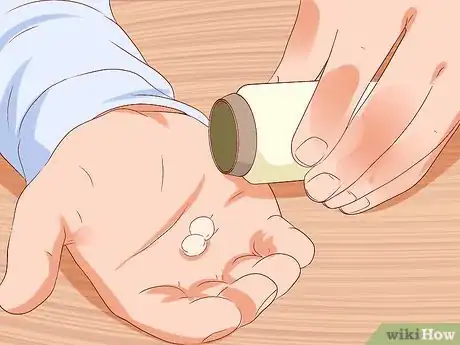
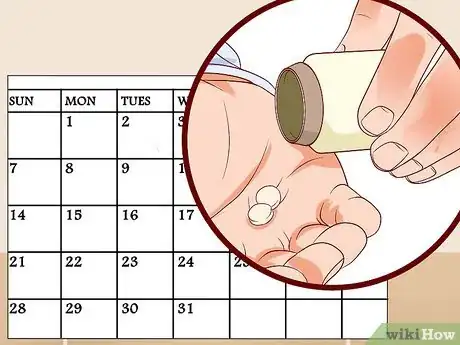
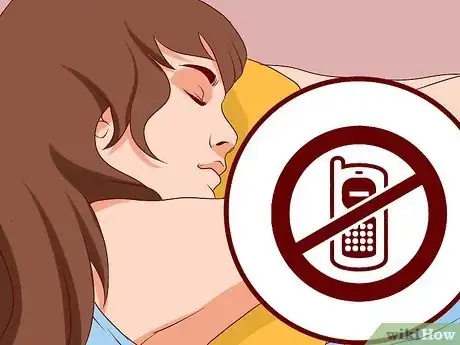
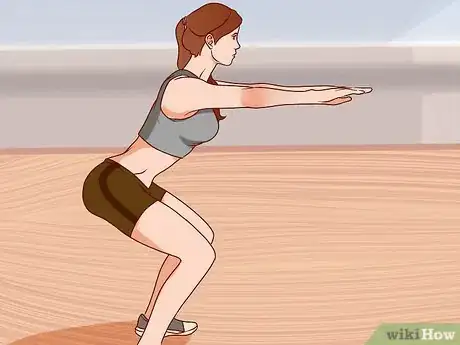
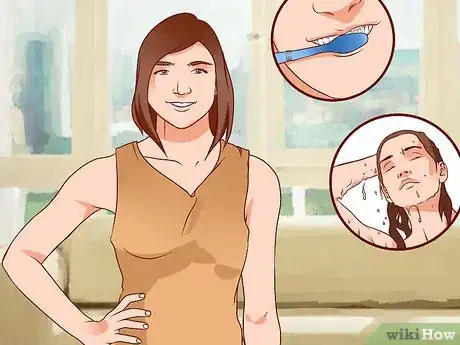
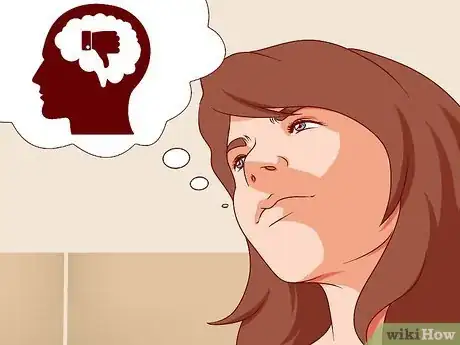


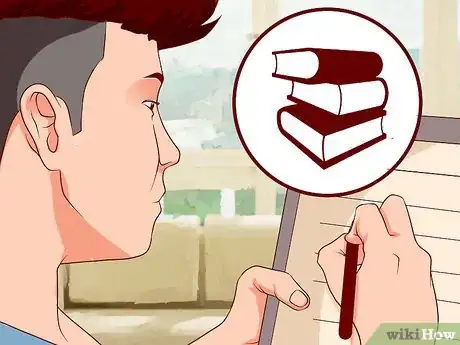

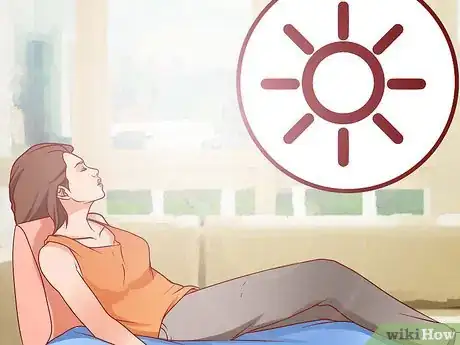

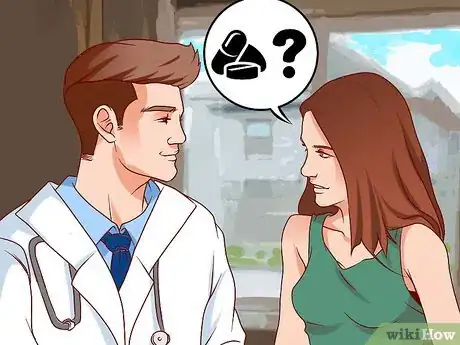





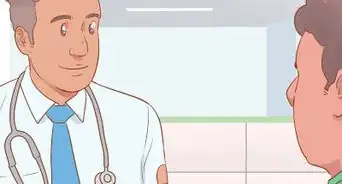

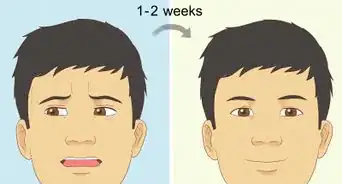
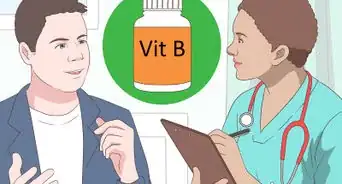
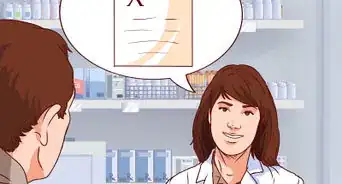

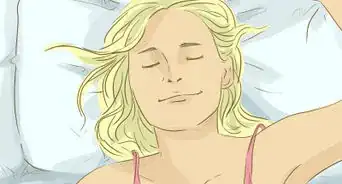
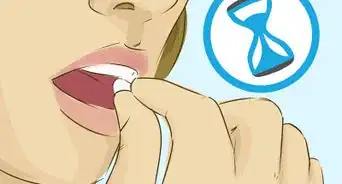
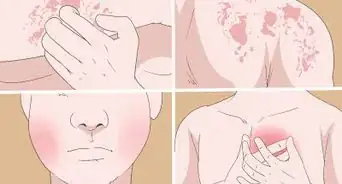










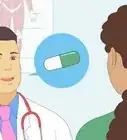






































Medical Disclaimer
The content of this article is not intended to be a substitute for professional medical advice, examination, diagnosis, or treatment. You should always contact your doctor or other qualified healthcare professional before starting, changing, or stopping any kind of health treatment.
Read More...